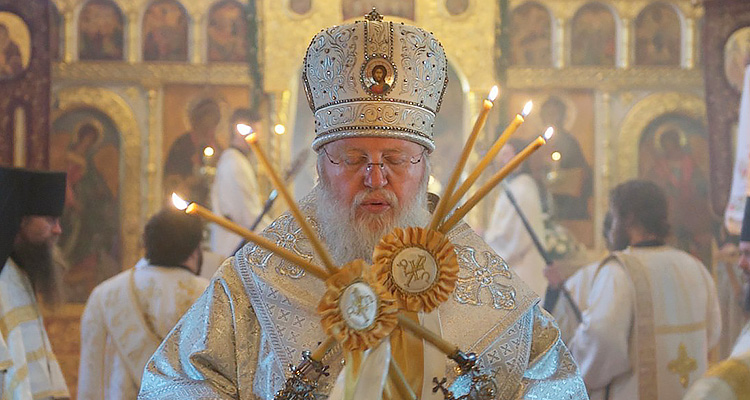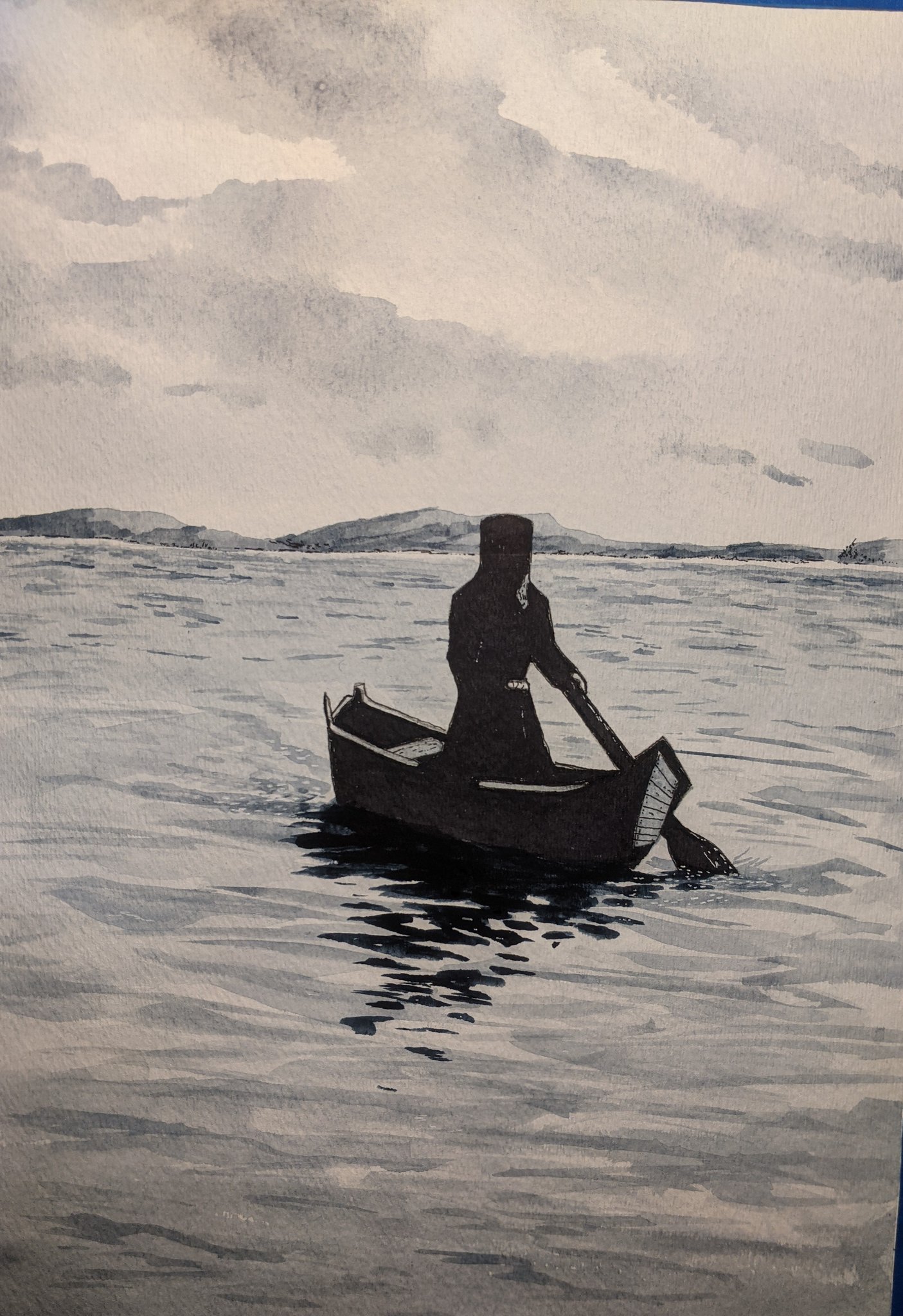In the life of the Church, icons are not mere decorations, but they are a part of the spiritual realm, allowing us to experience the glory of God and His saints. They are not objects of worship, but they are venerated as a means of encountering the divine. For as scriptures are written expressions of that Truth the Church upholds, likewise are the icons that adorn her walls like living stones depicting the same. For these Saints are not dead, but alive in Christ, and their lives which we remember, serve as shining examples for us to follow as living images of Christ.
The Triumph of Orthodoxy
In the name of the Father, and of the Son, and of the Holy Spirit, One God. Amen.
The Church, while being the Pillar and Foundation of Truth, has struggled and defended against controversies, heresies, and all manner of difficulties throughout her storied life across the span of two millennia. The Apostles first defended against the heresy of Judaizing, a belief that one first had to be or become a Jew before becoming Christian, of which Paul vehemently defended against throughout his many epistles. The Church endured many years of persecution from outside her walls by the Romans, trying dutifully to destroy that which lay within. The Church defended against the Arian heresy – a heresy that nearly tore the Church apart from within – first at the council of Nicea, and again later at the Council of Constantinople. This heresy taught that God the Son was a creature, a creation of God the Father, and likewise not co-eternal with the Father. Chalcedonian Christianity was established at the council of Chalcedon, defending against those who would argue God has but a single nature, diminishing the Human nature assumed by God the Son, that is, Jesus Christ. This heresy was resolved at the Ecumenical Council of Chalcedon, creating the schism that exists to this day between the Orthodox Church, and the Oriental Orthodox Church. Many more heresies have littered her hallowed halls throughout the ages, each resolved by subsequent ecumenical councils. The final ecumenical council, the second council of Nicea, settled the heresy of iconoclasm in October of 787, finally defeating those who would seek to destroy the faces of Truth as found within her iconography.
There has always been a struggle between the Church and her occasionally heretical and apostate emperors. Emperor Leo III banned the use of icons of Christ, the Theotokos and the Saints and commanded the destruction of these images in 730. This began the Iconoclasm Controversy and was fueled by the refusal of many Christian residents outside the Byzantine Empire to accept the emperor’s theological arguments. Iconoclastic Christians were spurred along by external influences to accept the emperor’s arguments, especially those living under the umbrella and Gnostic influences of the Islamic Caliphate, and others swayed by Jewish affluence and opinion against the Church and her practices.
There were two iconoclastic periods of note. The first one between 730 and 787, was ended by Empress Irene when she initiated the Second Council of Nicea, at which the veneration of icons was affirmed. While the worship of icons was expressly forbidden, the acceptance and veneration of icons was rooted in the incarnation of Jesus Christ, God the Son. Because He took on flesh, having a physical appearance, it is now possible to use physical matter to depict God the Son and to depict the saints.
The second period of Iconoclasm occurred between 813 and 843 and was ended by empress Theodora, who after her ascension to the throne, soon mobilized the iconodules and proclaimed the restoration of icons in 843. Since that time the first Sunday of Lent is celebrated as the feast of the “Triumph of Orthodoxy.”
That is the Sunday we celebrate today.
In the life of the Church, icons are not mere decorations, but they are a part of the spiritual realm, allowing us to experience the glory of God and His saints. They are not objects of worship, but they are venerated as a means of encountering the divine. For as scriptures are written expressions of that Truth the Church upholds, likewise are the icons that adorn her walls like living stones depicting the same. For these Saints are not dead, but alive in Christ, and their lives which we remember, serve as shining examples for us to follow as living images of Christ.
As Saint John of Damascus, one of the most prominent defenders of icons, has rightly stated, “I do not venerate matter, but I venerate the Creator of matter who became matter for my sake, and deigned to live in matter and bring about my salvation through matter. I will not cease from venerating the matter through which my salvation was achieved.” So, because God the Son was incarnated in human flesh, we hope to incarnate Christ within our own flesh, the faith of which is depicted on these walls around us.
The use of holy icons in our worship is an important aspect of our Orthodox faith. The icons offer us a glimpse into the mysteries of salvation, the life and passion of Christ, theological Truths, and help us connect with the saints who have gone before us. They remind us that the Incarnation is not just a theological concept, but a reality that occurred in history, through the incarnation of the Truth found only in Christ as the Law of the Spirit of life, a law meant to be lived, manifested, and incarnated into the world.
Saint John Chrysostom, one of the most revered fathers of our Church, often spoke about the importance of icons in the life of the faithful. He recognized the value of the visual representation of the divine, stating that “we see the invisible through the visible.” He also emphasized the role of icons in our spiritual development, encouraging us to contemplate on them and let them lead us to a deeper understanding of our faith.
Saint Theodore the Studite, another defender of holy images, was a monk who lived during the height of the iconoclastic controversy. He was a prolific writer who composed many hymns and prayers in defense of the use of holy icons. Saint Theodore argued that the use of holy icons was necessary for the Church’s spiritual well-being. He believed that the images of Christ and the saints served as tangible reminders of the spiritual reality that we cannot see with our physical eyes. The images help us to focus our minds on God and to connect with the spiritual realm.
On this day of Orthodoxy, we reaffirm our commitment to the use of holy icons in our worship of God the Father, God the Son, and God the Holy Spirit. We honor the memory of those who fought to preserve this sacred tradition and we renew our dedication to the Truth, of which our Orthodox Faith expresses, of which the Church embodies, and of which the faithful within uphold. We are to become living icons of Truth, living icons of Christ, as living stones of the body of Christ.
May the use of holy icons continue to be a source of strength and inspiration for us as we journey through this life, and may the light of Christ shine through them to guide us on our way. Let us follow the example of Saint John Chrysostom, who encouraged us to contemplate on the holy icons and let them lead us to a deeper understanding of our faith.
Also, let us remember the saints who steadfastly defended the use of holy icons against the heresy of iconoclasm with their powerful prose and passionate preaching. Let us honor their memory and follow in their footsteps, boldly proclaiming the truth of the Orthodox faith and upholding the use of holy icons as an integral part of our worship. May their intercessions before the throne of God guide us in our own journey of faith and inspire us to remain faithful to Truth, and constant in the safeguarding of her Holy Mysteries through a genuine life of faith.
Oh Lord Jesus Christ our God, by the prayers of thy most pure mother, the holy and God bearing angels, all the saints, and the martyrs, and the angels have mercy on us and save us.
Amen.













